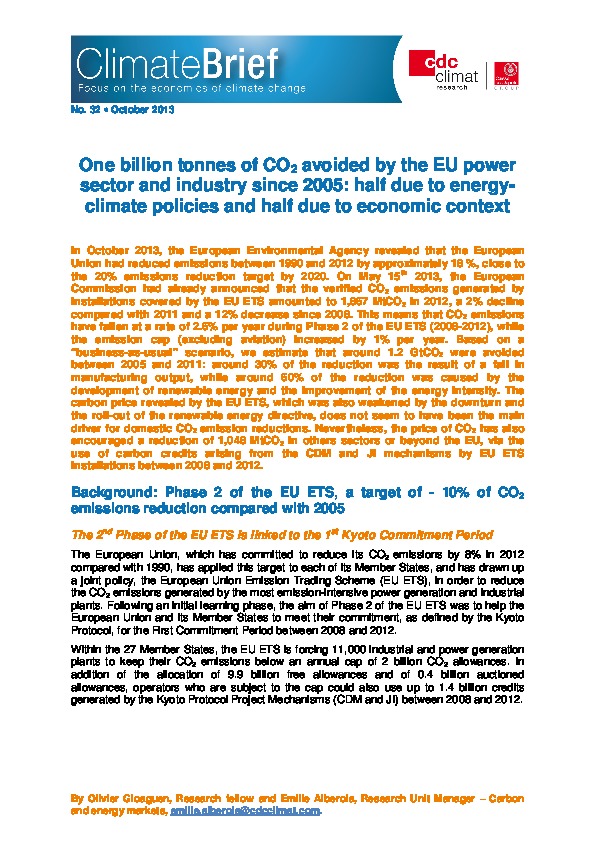One billion tonnes of CO2 avoided since 2005 in Europe: half due to energy-climate policies and half due to economic context
By Olivier Gloaguen and Emilie Alberola
- CO2 emissions generated by installations covered by the EU ETS decreased by 12.3 % since 2005, i.e a decline by 2.6% per year during Phase 2 of the EU ETS while the emission cap increased by 1% per year.
- The EU ETS ended Phase 2 with a surplus of 1,742 million of allowances. All sectors recorded an overall net surplus, except for the power generation and co-generation sectors.
- Based on a “business-as-usual” scenario, we estimate that around 1.1 GtCO2 were avoided between 2005 and 2011: around 30% of the reduction was the result of a fall in manufacturing output, while around 60% of the reduction was caused by the development of renewable energy and the improvement of the energy intensity.
